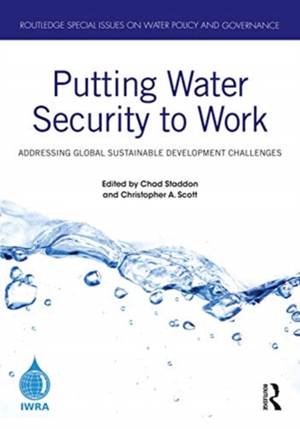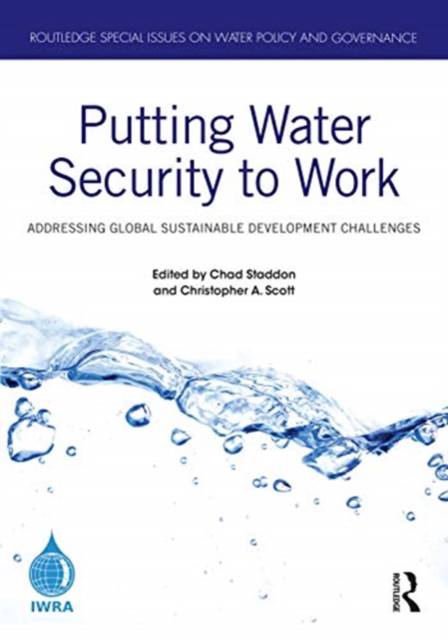
- Retrait gratuit dans votre magasin Club
- 7.000.000 titres dans notre catalogue
- Payer en toute sécurité
- Toujours un magasin près de chez vous
- Retrait gratuit dans votre magasin Club
- 7.000.0000 titres dans notre catalogue
- Payer en toute sécurité
- Toujours un magasin près de chez vous
Putting Water Security to Work
Addressing Global Sustainable Development Challenges
Description
Over the last decade, water security has replaced sustainability as the key optic for thinking about how we manage water. This reframing has offered benefits (including clear recognition of the link between humans, the environment and the right to water) and also posed challenges (the tendency in some quarters to interpret "security" solely in terms of geopolitical or economic "securitisation").
In this collection, the authors offer a radical repositioning of these debates updated to reflect the concerns of our post-pandemic world. The chapters in this volume examine several different themes including how water security articulates with locality and culture, how it operates across spatial scales and its moral/ethical resonances.
The chapters in this book were originally published in the journals Water International and International Journal of Water Resources Development.
Spécifications
Parties prenantes
- Editeur:
Contenu
- Nombre de pages :
- 172
- Langue:
- Anglais
- Collection :
Caractéristiques
- EAN:
- 9780367650193
- Date de parution :
- 10-09-21
- Format:
- Livre relié
- Format numérique:
- Genaaid
- Dimensions :
- 170 mm x 244 mm
- Poids :
- 494 g

Les avis
Nous publions uniquement les avis qui respectent les conditions requises. Consultez nos conditions pour les avis.





